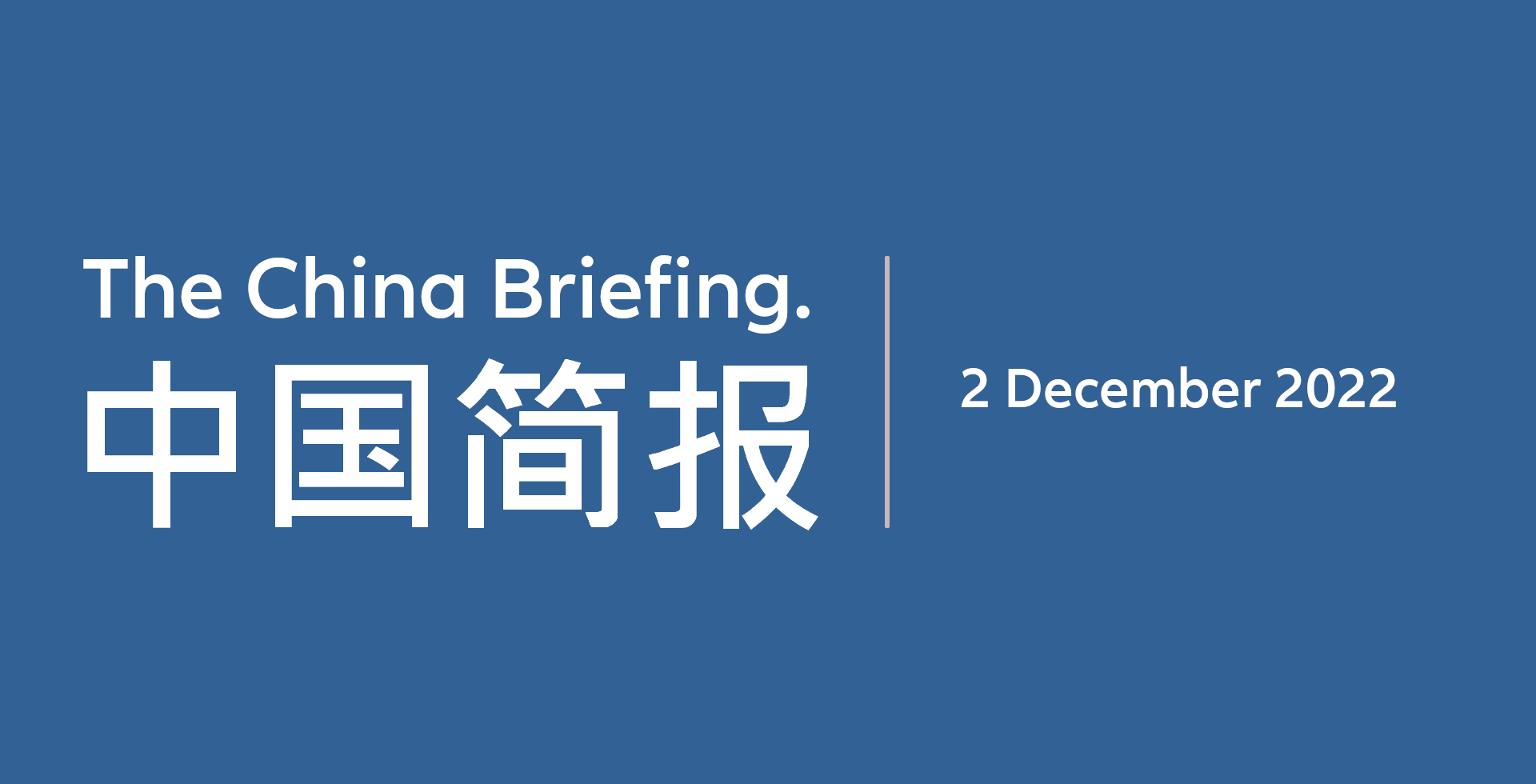The China Briefing
China’s de facto opening up

Please find below our latest thoughts on China:
- The performance of China’s financial markets has provided some interesting and occasionally conflicting insights in recent days.
- After the widespread media coverage of protests in China, equity markets opened sharply down this week. The Hang Seng China Enterprises Index (effectively offshore-listed H-shares) fell by 4.5% in the first minutes of trading on Monday 28 November.1
- The initial assumption was that the protests – seen in response to the government’s zero-Covid policy – would lead to further lockdowns, putting additional pressure on the already weak macro environment.
- But following those first few minutes, it has been one-way traffic this week. China equities have rallied hard, extending gains from earlier in the month.
- The MSCI China Index rose by almost 30% in November and the MSCI China A Onshore index was up 11% (both USD).2
Chart 1: MSCI China A Onshore and MSCI China performance – 3 months (USD, rebased to 100)

Source: Bloomberg, as at November 30, 2022
- Given the pace of the rally, to some extent this likely reflects technical factors – short covering, light positioning in China, and the FOMO effect for “hot money”.
- But all the same, the market moves also reflect what look to be significant changes in two key areas – Covid policies and property.
- On Covid, instead of expectations of a harsher clampdown, a steady trickle of news this week has strongly suggested that, to all intents and purposes, China is actually on a path of de facto opening up.
- Beijing authorities, for example, announced that some people would be able to isolate at home, starting with residents of its most populous district – a significant shift in dialling back a nationwide policy that has previously seen everyone with Covid sent to government quarantine sites regardless of severity.
- The tone of coverage in China’s media has also changed – the official wording now is “optimisation” of Covid policies, which among other things involves changing the narrative to play down the risks of Covid and playing up the need for vaccination, especially among the elderly.
- What is, above all, especially notable is how policies are being eased despite Covid cases in China running at their highest levels since the initial outbreak (and above the levels during the peak of the Shanghai lockdown).3
Chart 2: Daily new Covid-19 cases in Mainland China

Source: Wind, Allianz Global Investors, as at November 30, 2022
- The opening up is likely to be bumpy. Different local governments will interpret the “optimised” strategy in different ways. But looking beyond this, there is a growing likelihood that the zero-Covid policy will end within the next few months.
- Reflecting this, the beneficiaries of reopening have been leading the equity markets – online travel portals, duty-free store operators, restaurants, airlines and so on.
- The other area of strength has been property. The CSI Real Estate Index (ie, listed China A-share developers) rallied by 31% in November and – remarkably given the environment – is almost flat year to date (local currency).4
- The catalyst has been a decisive shift in policy following the Party Congress to ease the funding pressures of cash-strapped developers. The China securities regulator joined in this week by lifting a multi-year ban on equity raising by A-share and HK-listed H-share property companies.
- We interpret this as more of a risk management exercise, with the main purpose being to facilitate the completion of already pre-sold homes – we still view property as a sector in gradual but structural decline, especially given demographic changes.
- But nonetheless, by easing the acute financial stress and starting the process of rebuilding confidence (as well as homes), this also removes one of the obstacles to a macro recovery.
- In summary, we see recent policy news as meaningfully increasing the probability that 2023 will see an acceleration of economic growth. This will feed through into corporate earnings, especially in the second half of next year.
- Against a backdrop of reasonable absolute and relative valuations (MSCI China 10.4x, MSCI China A Onshore 12.0x forward PE),5 we see reasons to be more optimistic on the return outlook for China equities in the year ahead.
1 Source: Bloomberg
2 Source: Bloomberg, 1 December 2022
3 Source: China National Health Commission, 30 November 2022
4 Source: Bloomberg, 30 November 2022
5 Source: Bloomberg, 30 November 2022


